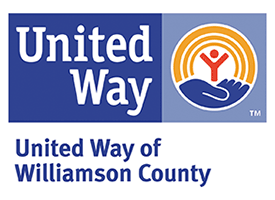Talking with Kids About COVID-19

Caring for the health and emotional well-being of children goes hand in hand with our mission of helping children achieve their potential. Concern over the coronavirus can make adults and children alike feel anxious. Helping children cope with anxiety involves providing accurate prevention information and facts, without causing undue alarm. It’s important to reassure children and to talk to them about what is going on. When you talk about feelings and concerns, they become less overwhelming and less scary.
The National Association of School Psychologists reminds us that “children look to adults for guidance on how to react to stressful events. If parents seem overly worried, children’s anxiety may rise.” To help children cope, give them factual, age-appropriate information and talk about things they and you/your family can do to stop the spread of the virus. This will provide children/Littles with a greater sense of control, which can help to reduce their fears.
Deborah Farmer Kris is a writer, teacher, parent educator, and school administrator who also writes about education for NPR. She offers some helpful tips based on her own experience:
- First, I shared age-appropriate facts and corrected misinformation. Because my kids are young, I kept it simple. “You know what it’s like to have a cold or the flu — how sometimes you get a cough or have a fever? This is kind of like that. Most people who catch this sickness stay home, rest and get all better. And we have wonderful doctors and nurses who can help people when they need it.”
- Second, I reassured them that they are safe, which is the most important message my kids can hear from me. I know that they take their emotional cues from my tone. “You don’t need to worry. Right now, lots of amazing grown-ups are working hard to keep people healthy. Luckily, we already know a lot about how to keep healthy!”
- Third, I emphasized simple things our family can do to be “germ busters” — for all types of germs that are out there! Kids and adults are “more distressed when we feel helpless and passive, and more comfortable when we are taking action.” The hygiene routines that slow the spread of COVID-19 are the same habits that help keep us healthy all year round.
Below we’ve provided some additional resources that might be helpful in talking with children/Littles about COVID-19.
Resources
- Talking With Children – https://store.samhsa.gov/product/Talking-With-Children-Tips-for-Caregivers-Parents-and-Teachers-During-Infectious-Disease-Outbreaks/SMA14-4886
- Coping With Stress During Infectious Disease Outbreaks – https://store.samhsa.gov/product/Coping-with-Stress-During-Infectious-Disease-Outbreaks/sma14-4885
- Centers for Disease Control and Prevention – https://www.cdc.gov/coronavirus/2019-ncov/about/transmission.html
- Handwashing and Hand Sanitizer Use at Home, at Play, and Out and About – https://www.cdc.gov/handwashing/pdf/hand-sanitizer-factsheet.pdf
- Just For Kids: A Comic Exploring The New Coronavirus, from NPR
- For talking with teens – https://www.health.harvard.edu/blog/how-to-talk-to-teens-about-the-new-coronavirus-2020031419192
- Common Sense has some great videos and other resources that can help families, caregivers, Bigs and Littles better understand what’s going in the news and how to react to it, as well as how to stay calm and learn at home.
- The Child Mind Institute outlines some great resources and approaches on how to talk with younger kids about COVID-19. Here’s another great article too from PBS.
- National Child Traumatic Stress Network offers an incredible COVID-19 Coping Guide with specific strategies and recommendations for each age group.








